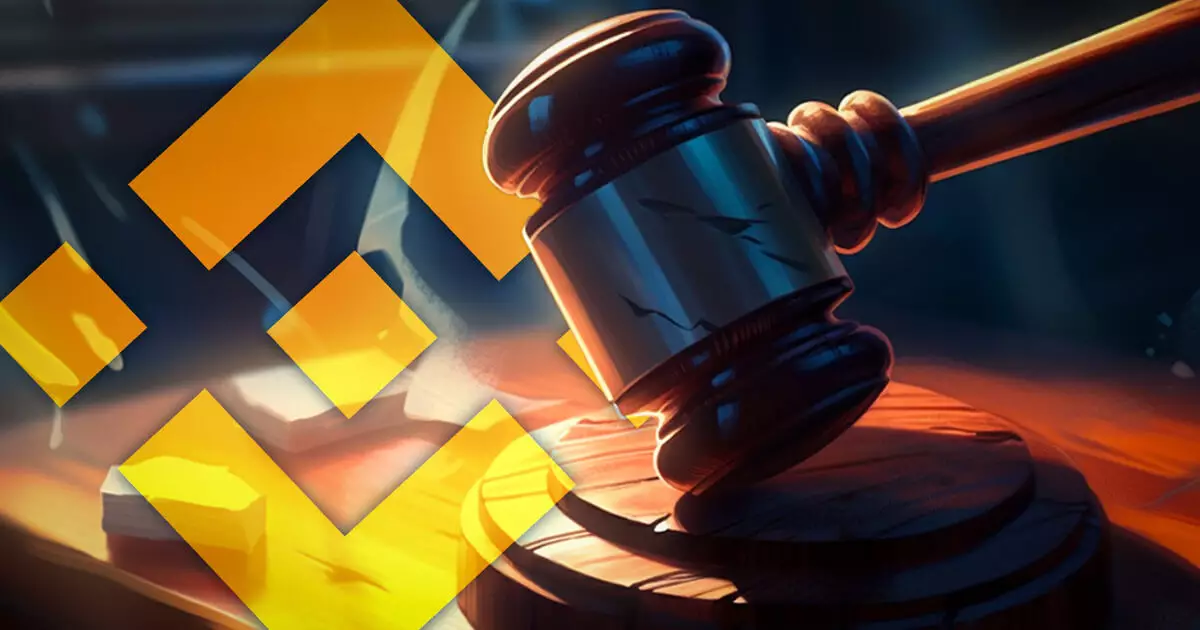The U.S. Department of the Treasury made a groundbreaking announcement on November 21, shedding light on the extensive wrongdoing by cryptocurrency exchange platform Binance. Secretary of the Treasury, Janet Yellen, did not mince words, stating that Binance had blatantly disregarded its legal obligations in pursuit of profit. Yellen further expressed that Binance’s failures to fulfill its responsibilities had allowed funds to flow to malevolent entities such as terrorists, cybercriminals, and child abusers. The Treasury’s comments were aimed at marking a significant moment for the virtual currency industry, implying that strict actions were necessary to hold negligent actors accountable.
According to the Treasury’s statement, Binance had violated the Bank Secrecy Act (BSA) and had seemingly breached multiple sanctions programs. The cryptocurrency exchange platform’s lack of initiative to implement programs to prevent and report suspicious cryptocurrency transactions related to criminal activities such as child sexual abuse material, ransomware, money laundering, and terrorism were brought to the forefront. Shockingly, the Treasury specifically named internationally recognized terrorist groups such as Hamas, Palestinian Islamic Jihad, Al Qaeda, and ISIS as beneficiaries of Binance’s disregard. Moreover, Binance allowed users based in the United States to engage in transactions with parties located in sanctioned areas including Iran, North Korea, Syria, and the Crimean region of Ukraine – a clear violation of international regulations.
Highlighting the severity of the violations, the Treasury, together with its subdivisions – the Office of Foreign Assets Control (OFAC) and the Financial Crimes Enforcement Network (FinCEN) – reached a significant resolution with Binance. As part of FinCEN’s settlement, Binance is to pay a staggering $3.4 billion civil penalty and subject itself to five years of strict monitoring. Additionally, Binance is obligated to implement robust compliance measures and exit the United States entirely. OFAC imposed a separate settlement, demanding a $968 million penalty and imposing various compliance obligations, including the implementation of the FinCEN monitorship. These settlements are unprecedented in the history of the Treasury and its subdivisions, serving as a stark reminder of the seriousness of Binance’s transgressions. Failure to comply with the obligations could result in an additional $150 million in penalties for Binance.
Notably, the Department of Justice (DOJ) launched its independent investigation into Binance, securing a separate settlement. Under this agreement, Binance will pay a staggering $4.3 billion, comprising a $2.5 billion forfeiture and a $1.8 billion criminal fine. It is crucial to note that $1.8 billion will be credited towards the various settlements with the Treasury and an additional $150 million settlement with the Commodity Futures Trading Commission (CFTC). The DOJ, responsible for handling the criminal aspects of the case, has chosen not to pursue further prosecutions against Binance. However, the former CEO of Binance, Changpeng Zhao, faces personal consequences, potentially serving up to 18 months in prison. Zhao’s sentencing is scheduled for February 2024.
The U.S. Department of the Treasury’s comments on Binance’s settlements shed light on the gravity of the situation and aim to hold Binance accountable for its willful neglect of legal obligations. With unprecedented penalties and strict monitorship requirements, Binance finds itself facing financial and regulatory obstacles like never before. The virtual currency industry must now reckon with the consequences of its negligent actors as the United States undertakes measures to ensure the integrity of the financial system and protect against illicit activities.

